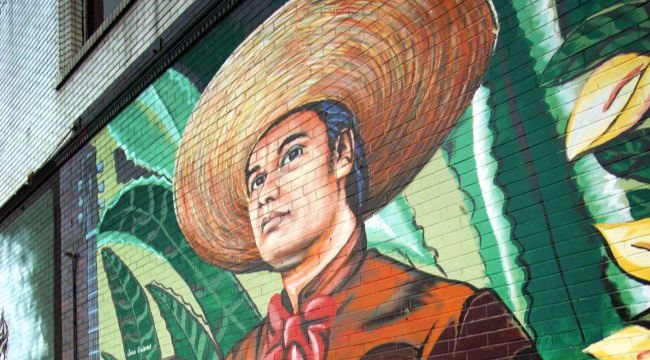
While the rest of the country has been debating whether removing Confederate statues means erasing Civil War history or would expand cultural dialogues to include the experiences of people of color, Arizona has been engaged in a legal battle over banning ethnic studies for high school students. Today, that fight reached a conclusion when federal Judge A. Wallace Tashima ruled that a 2012 ban on that program was unconstitutional. Despite the defense’s argument that teaching Mexican-American studies (MAS) was a form of reverse racism that was unfair to whites, the judge found the opposite — that it was the school board that was “motivated by racial animus” and “by a desire to advance a political agenda by capitalizing on race-based fears.”
The ruling also stated that the two men who worked to end the MAS program — Tom Horne and John Huppenthal — each had a lot to gain from targeting the program, despite the fact it was shown to increase student engagement. “Additional evidence shows that defendants were pursuing these discriminatory ends in order to make political gains,” Tashima wrote. “Horne and Huppenthal repeatedly pointed to their efforts against the MAS program in their respective 2011 political campaigns, including in speeches and radio advertisements. The issue was a political boon to the candidates.”
The MAS curriculum was developed as a response to a separate lawsuit in the late 1990s that alleged the Tucson school system was still effectively, if not officially, segregated. After the Tucson school district introduced more works by Latinx authors and addressed historical and cultural topics relevant to the Chicano experience, test scores and graduation rates went up. The program was such a success that expansion was recommended. Similar programs have been found effective in other states, too, including California.
The primary argument made against the MAS program was that it might promote the narrative that Latinos are oppressed by white people, not unlike the accusation that Black Lives Matter practices reverse racism. However, it’s hard to get around the fact that Horne and Huppenthal pushed to dismantle a program designed to address racial inequality. Offering Mexican-American studies didn’t demonstrably deny white students any opportunities, but banning MAS put minority students right back where they were in 1998.
It might seem like a niche ruling that doesn’t have much relevancy outside the states that were once a part of Mexico and now have a sizable Latinx population, but the MAS ruling is worth the whole country’s consideration. Just yesterday, President Trump accused the left of “trying to take away our history and heritage.” Tashima’s decision runs counter to that school of thought, instead making the case that expanding historical and cultural narratives is one more step toward equality.
(Via ABC & Mother Jones)
